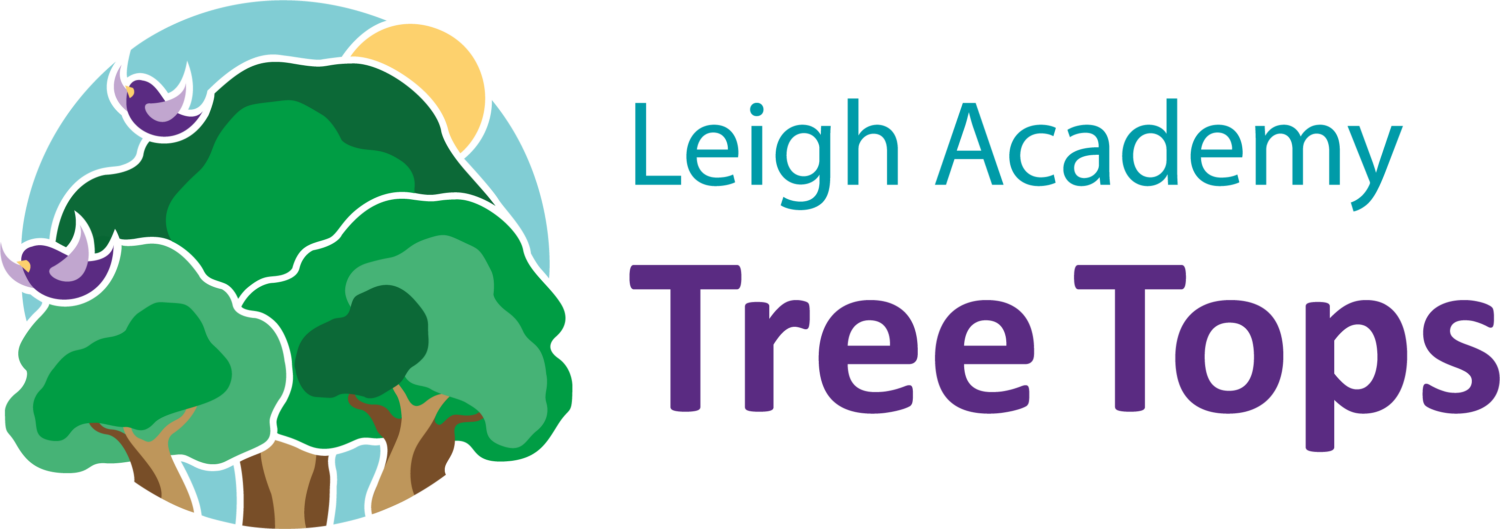At Leigh Academy Tree Tops, the teaching of Science encourages inquisitive thinking to enrich pupils’ curiosity in order to develop their understanding of the world around them. Acquiring knowledge and an understanding of scientific processes enables pupils to make links between Science in the classroom and its implications within today’s world, and importantly, the future.
Within an immersive environment, pupils develop scientific knowledge and understanding which is demonstrated by written and verbal explanations, solving challenging problems and reporting scientific findings. Pupils have opportunities to explore, question and come to balanced conclusions; resulting in pupils who are motivated to discover and ask questions.
Aims:
The National Curriculum for Science aims to ensure that all pupils:
- Develop scientific knowledge and conceptual understanding;
- Develop understanding of the nature, processes and methods of science;
- Help answer scientific questions about the world;
- Equip scientific knowledge required to understand the uses and implications of science today and in the future.
- Each year group builds upon the learning from prior year groups, developing depth of understanding and progression of skills.
- Teachers promote enjoyment and foster interest in the scientific disciplines; Biology, Chemistry and Physics.
- Children develop working scientifically to explore, question, predict, plan, carry out investigations and observations as well as conclude their findings.
- Children present their findings and learning using science specific language, observations and diagrams.
- In order to support children in their ability to ‘know more and remember more’ there are regular opportunities to review the learning taken place in previous topics as well as previous lessons.
- At the start of each inquiry or study, children will review previous learning and will have the opportunity to share what they already know.
- The vehicle which drives learning throughout the term is the central idea and associated lines of inquiry. Therefore, science is taught through these vehicles where possible.
- Carefully designed, interleaved learning in science ensures consistency and progress of all learners.
- Effective use of education visits and visitors are planned, to enrich and enhance the pupil’s learning experiences within the Science curriculum.
- Teachers use highly effective assessment for learning in each lesson to ensure misconceptions are highlighted and addressed.
- Effective modelling by teachers ensures that children are able to achieve their learning intention, with misconceptions addressed within it.
- Through using a range of assessment tools, differentiation is facilitated by teachers, to ensure that each pupil can access the Science curriculum.
- Pupils are regularly given the opportunity for self or peer assessment, which will then be used to inform planning, preparation, differentiation and address misconceptions within that lesson, or for the next lesson.
- The subject leader for Science will meet the senior leadership team and representatives from the Trust on a regular basis to evaluate provision in order to ensure that teaching and learning in Science is highly effective.
- Effective CPD and standardisation opportunities are available to staff to ensure high levels of confidence and knowledge are maintained.
- Learning is adapted and tailored to meet the needs of all pupils, including those with SEND, through adaptive teaching; including guidance from the EEF (Education Endowment foundation). Educators incorporate explicit instruction, cognitive and metacognitive strategies, scaffolding, flexible grouping and use of technology into daily classroom practice to ensure access for all.
The impact of this curriculum design will lead to outstanding progress over time, across key stages, relative to a child’s individual starting point and their progression of skills. Children will be able to remember more and do more. Through various workshops, trips and interactions with experts our Science curriculum will lead pupils to be enthusiastic science learners and understand that science has changed our lives and that it is vital to the world’s future prosperity. We want to empower our children so they understand they have the capability to change the world. This is evidenced in a range of ways, including pupil voice, their work and their overwhelming enjoyment for science.
Each lesson will include live marking (as per the Marking and Feedback Policy). Homework is not formally set in science but knowledge activities (both written and abstract) are encouraged to enhance enrichment opportunities; these may take the form of (but not limited to) reading scientific books and watching / participating in science experiments. High quality teaching responds to the needs of children. An assessment grid (the foundation skills assessment) is used to formally record an overview of progress of each child.
Within our firm belief that knowledge is transferable, our pupils are given every opportunity to participate in a wide range of learning experiences beyond their classrooms.
Leigh Academy Tree Tops has constructed a science curriculum that is designed to give all pills, particularly the disadvantaged, the knowledge and cultural capital they need to succeed in life.


